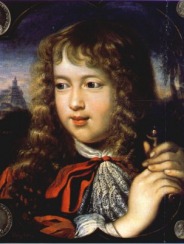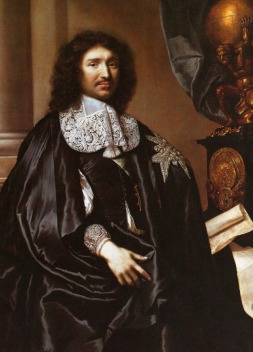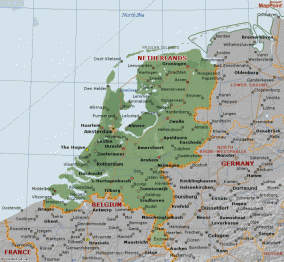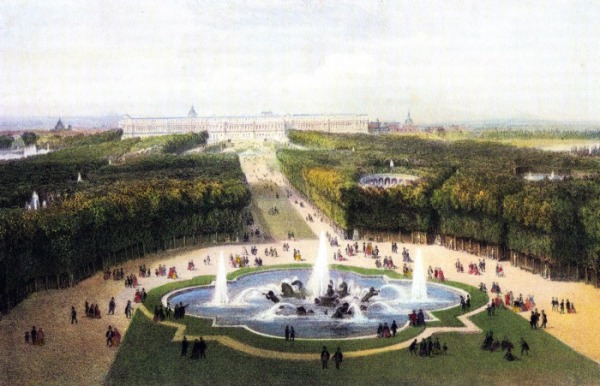LOUIS XIV OF FRANCE? WHO'S THAT?
in SIMPLEST TERMS, Louis is the cause for the War of the Spanish Succession - if he hadn't been related to Philip V, there wouldn't have been a war at all. Allow me to explain:
HIS YOUTH: IN FEAR

Louis XIV became the king of France in 1643 at the age of four, but of course, as previous Louis leaders, the Cardinal, who was there to replace the weak monarchy, ruled the country. Thus, the real ruler at his time was Cardinal Mazarin, Cardinal Richelieu’s successor. Mazarin was a very unpopular leader amongst the nobles because he increased taxes and reduced the power of the nobles by strengthening central government. Louis had a bad childhood – as the nobles revolted from 1648 to 1653, they threatened his life with violent riots. Even though the riots died down eventually, Louis never forgot this, and thus was determined to completely dominate the nobles in power.
Louis as a young king.
bibliography: http://www.louis-xiv.de/uploads/pics/3b_10.jpg
"MY WAY OR THE HIGH WAY"

His chance came when Cardinal Mazarin passed away, Louis at the age of 22. For the first time, Louis took complete control over the government, and made some modifications.
1) As he promised himself when he was younger, Louis weakened the power of the nobles by excluding them from his councils. He made them all live in his palace, Versailles, and by doing so, completely weakened their power over their own estates and made them completely rely on him.
2) To further destroy the nobles’ authority in the country, Louis increased the power of government agents called intendants. Their job was to collect taxes and make sure that fair game was being played – justice was judged by their call. Intendants would regularly report to Louis as a way to keep an eye on them.3) As a way to help the economy, Louis allowed the minister of finance, Jean Baptiste Colbert, to step up and practice his theory of mercantilism. Colbert believed that the way to contain the wealth of the country was to make it more self-sufficient. Thus, Louis acted upon this idea, and contributed government funds and even tax benefits to French companies and industries. He also increased taxes on foreign imports.
Jean Baptiste Colbert.
bibliography: http://upload.wikimedia.org/wikipedia/
commons/d/d8/Lefebvre_-_Jean-Baptiste_Colbert.jpg
In acknowledgment to the fact that natural resources from the colonies in Canada were essential to the economy, Colbert encouraged the people to migrate to the colonies. All of Colbert’s ideas remained successful until his death. Louis then took control again, and in 1685, decided to cancel the Edict of Nantes (which tolerated the practices of the Huguenots), and lost many skilled businessmen, artisans, and workers in the country.
...rich boy...
On the more personal side of his life, Louis lived a very luxurious life. Much of the money that he received went into accessories, food, and unnecessary construction of beautiful palaces, which often led Louis to come broke. Louis devoured food like a monster, and had about 500 cooks, waiters and other servants to bring to life his daily feasts.
The palace in which he stayed in, Versailles, was like a small city of its own. As mentioned before, Louis forced his nobles to live in the palace with him. In the palace was a large statue of Louis himself, the palace covering almost a distance of 500 yards. Rich decorations revealed only a small portion of Louis’ taste for the revival of the arts.
The garden in Versailles Palace.
Bibliography: http://upload.wikimedia.org/wikipedia/commons/6/66/Versailles_Palace_garden_c1860.jpg
SO...THE CAUSE OF THE WAR?

His reaction to war and instinct in battle may be the true cause for the spark of the Spanish Succession. For example, Louis invaded the Netherlands in 1667 in attempt to broaden the borders of France. He was encouraged by the gain of 12 towns, and thus decided to continue in his campaign. But the Dutch opened up the dikes and flooded the country as Louis personally led the army deeper into territory. The war ended under the Treaty of Nijmegen in 1678. Even at this loss, Louis continued to try to expand territory, but eventually, the surrounding European nations grew alarmed, that they created a Europeanwide alliance to stop France. France’s momentum could be stopped if numerous weak countries unified to match up with France’s army. The power hungry Louis had his chance in 1701 when Philip was left with the throne, but lost it to the alliance.
Map of the Netherlands.
bibliography: http://www.sacred-destinations.com/netherlands/images/maps/netherlands-zoom7.gif

